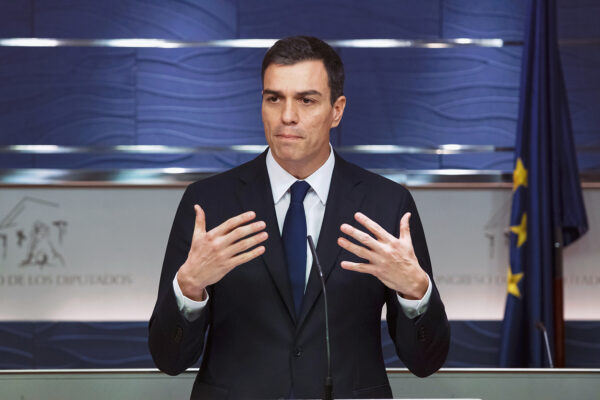
Spanish parties have broken the cardinal rules of coalition politics. As a result, the country may need to go to elections for the fourth time in as many years.
Outgoing prime minister Pedro Sánchez has one last chance to stay in power. If the far-left Podemos supports him after all, and the Catalan independence parties abstain from today’s investiture vote, he could scrape by with the smallest possible majority.
But if either sticks to its guns, the Socialists would either have to nominate another candidate (unlikely) or call snap elections in the autumn.
Rule 1
The root of the problem, as I argued here last week, is that Spanish politicians have yet to come to grips with coalition politics.
It used to be that the center-left and center-right could govern on their own. Now Spain has five major parties — but they have sorted into two blocs.
The first rule of multiparty democracy is: don’t exclude other parties before the election. That only hurts your negotiating position in coalition talks.
All the Spanish parties broke this rule. Podemos and the Socialists ruled out a deal with the conservative People’s Party and the far-right Vox. Those parties, in turn, and the liberal Citizens, ruled out deals with the left. The Socialists are now dependent on the far left while the mainstream right is dependent on the far right.
Both Podemos and Vox are understandably trying to exploit this situation (read my earlier article on Vox), but, from what I’ve read in the Spanish media, Podemos‘ are not been unreasonable.
Rule 2
The fact that I know is part of the problem. Both Podemos and the Socialists have been negotiating through the media, breaking rule number two.
When you’re in negotiations to form a government, don’t try to strengthen your position by selectively leaking to journalists. It only encourages the other side to do the same and it undermines trust, which is crucial to getting a deal.
The Socialists have told reporters that the main obstacle was Podemos leader Pablo Iglesias’ demand to join the cabinet. This prompted Iglesias to publicly deny he had such ambitions.
Another sticking point — reportedly — was that Podemos wanted control of the Labor Ministry. The Socialists feared this would scare businesses, given Podemos‘ far-left views. It argues for canceling Spain’s debt and nationalizing industries.
When talks broke down on Wednesday, the Socialists went so far as to release a document which they said listed the demands of Podemos. Podemos responded that the document had only been a starting point for negotiations. The Socialists then claimed Podemos hadn’t moved from those demands.
Whatever the truth, the blame in this case must go to the Socialists, who violated Podemos‘ trust and tried to turn public opinion against it.
